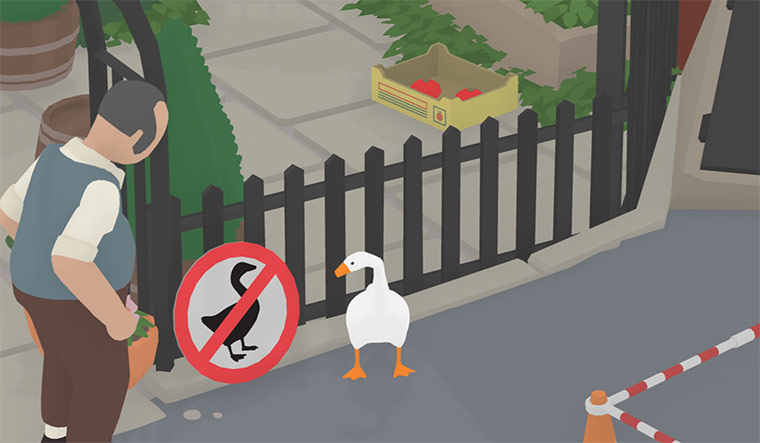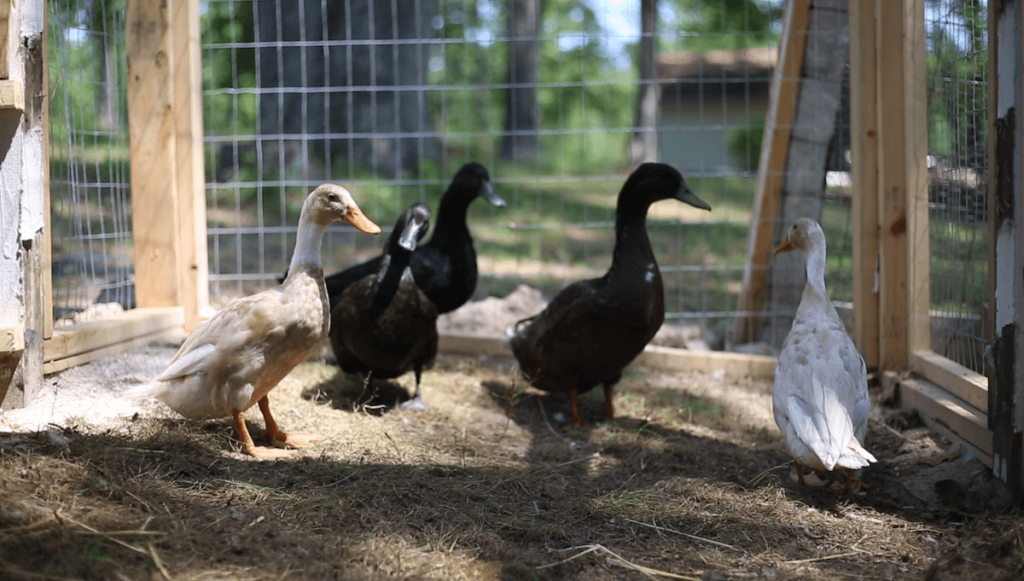Contents
What Is Anatidaephobia?

Anatidaephobia is an irrational fear of ducks or other waterfowl. It may stem from a traumatic experience with the animals when young. It could be related to fear of their wide beaks, fluffy feathers, or noisy quacking noises. The recommended treatment for this phobia is exposure therapy. It is where the person gradually faces their fear in a safe environment.
The symptoms are similar to that of any other phobia. These can range from mild discomfort all the way up to panic attacks. These can also be total avoidance of anything relating to waterfowl. There are many causes that affect the people and make them face difficulties in functioning normally in society-particularly at work-or even lead a normal life outside of work hours as well.
Symptoms of Anatidaephobia
The symptoms of Anatidaephobia are very similar to that of any other phobia and can range from mild discomfort all the way up to panic attacks and total avoidance of anything relating to waterfowl.

- An inexplicable sense of dread, nausea, trembling, feelings of being choked or smothered, rapid heart rates are just some of the possible symptoms of Anatidaephobia. The individual also could have difficulties breathing or other bodily functions that are affected by panic attacks.
- People who find themselves severely affected by this phobia can also have difficulty functioning normally in society. It can be particularly at work where they will constantly be on the lookout for anything related to waterfowl.
- It is common for people with Anatidaephobia to feel so uncomfortable around ducks or any other form of a bird that they restrict their lives to within the four walls of their homes and avoid going out whenever possible. Their fear has usually grown so much that even watching TV shows featuring animals similar to ducks can cause them immense discomfort.
Causes of Anatidaephobia
While the exact cause of this phobia is unknown, the majority of cases point towards it being a learned fear. Studies show that while children are often exposed to ducks and other waterfowl while growing up, there is no correlation between that exposure and developing Anatidaephobia. Research has also shown that many people who have Anatidaephobia have gone through some form of traumatic experience with the animals in their childhood.

There are three main possible explanations for why these events may lead to irrational fear.
- First, it could be because the powerlessness felt by the individual when they were young was amplified because they had no control over their environment or what happened to them. This sense of powerlessness then transfers over into adulthood when the individual encounters waterfowl.
- Second, it may be due to a specific traumatic event during their time with the ducks that the person has not been able to come to terms with. As an example, if a child was holding a duck and it suddenly bit them or pecked at them instead of being gentle as they would normally be, then this could lead to an association between ducks and pain which can turn into Anatidaephobia over time.
- Third, this condition may stem from abuse inflicted by someone who wasn’t happy about the child coming into contact with birds in general resulting in them being afraid of them later on in life.
Some Common Triggers

These are some trigger points of Anatidaephobia:
- Being in the presence of a duck or hearing someone mention a duck in any way. It doesn’t matter what kind of context the duck appears in if there’s a photo of a duck on TV, a movie with a scene about a duck, an advertisement with a white fluffy duck, etc., it will trigger the fear response.
- People who are scared to death of ducks might also see them as evil creatures. They could perceive their quacks as terrifying sounds and be terrified when they flash their webbed feet at them or shake tail feathers around noisily.
Who Is Most Likely To Suffer?
- People who are born with a phobia of ducks are most likely to suffer from this phobia. It is common for the fear of ducks to be passed on through genetics.
- Also, it is believed that people who suffer from a duck phobia have been around ducks as children and were traumatized by the experience.
- The most common triggers of this fear include being in the presence of a duck or hearing someone mention a duck in any way. It doesn’t matter what kind of context the duck appears in if there’s a photo of a duck on TV, a movie with a scene about a duck, an advertisement with a white fluffy duck, etc., it will trigger the fear response.
- People who are scared to death of ducks might also see them as evil creatures. They could perceive their quacks as terrifying sounds. They can be terrified when they flash their webbed feet at them. It can also shake tail feathers around noisily.
Diagnosis of Anatidaephobia
The diagnosis of Anatidaephobia is not a matter of medical science, but rather is a mental illness. It is the irrational fear of ducks and other waterfowl. The causes for this phobia may come from traumatic experiences or from witnessing or experiencing how aggressive these animals can be from an early age.
It is normal for anyone with this phobia to avoid areas where they feel there will be a high chance of encountering a duck. It can be even going as far as avoiding people who might have a duck in their possession.
The recommended treatments for this phobia are studies and gradually facing the fear. Still, there is still no certainty that it will work. This is because it may be too hard to face the fear as an adult, as Anatidaephobia can stem from a young age where many people don’t make those connections between their experiences and what they feel now.
How Can You Manage It?
Exposure therapy is the best way to manage Anatidaephobia. This treatment involves gradually exposing the individual to their fear of waterfowl in a safe environment. You can achieve this in many different ways and it will depend on what the individual is comfortable with. Some examples of exposure therapy techniques that can be used include:
- Talking about their fear of waterfowl with someone they trust
- Looking at pictures or watching videos of waterfowl
- Touching, holding, or feeding waterfowl
- Visiting a petting zoo, farm, or another place where there are animals similar to ducks (this may not be possible if they suffer from Agoraphobia).
- One may see swimming in lakes or rivers where waterfowl.
If you or someone you know is suffering from Anatidaephobia, you should seek professional help to overcome the condition. One can exposure therapy conduct in a controlled environment. It will make it easier for the individual to cope with their fear of ducks and other waterfowl. It is important that they do not try to tackle this phobia on their own. This could also lead to relapses in the future. If left untreated, Anatidaephobia could eventually become so debilitating. It can also affect everyday life in a negative way. It may have repercussions in later life.
How To Overcome This Fear?
If someone does not receive help for this condition then it may worsen over time. It can eventually start off as an irrational fear. It can gradually become a very real mental illness. If the individual who has Anatidaephobia is not able to connect with others or function normally in society, then they will eventually become depressed. Anatidaephobia can also sometimes lead to other mental illnesses such as anxiety disorder which may require medication to treat.
There are many ways to deal with and overcome the fear of ducks. Some people have tried to treat this phobia by associating ducks with positive things. These can be like how Disney movies portray them as cute and cuddly. This isn’t very effective because it doesn’t actually help the sufferer overcome their fear of ducks. It just makes them less frightened for a little while.
You can only cure it completely, by facing it head-on. You can challenge your own thoughts about ducks. If you’re scared that they’re evil creatures, try looking up videos or articles that show baby ducklings and baby duck families together. You can observe if these calms you down any. You can also look at pictures of different types of ducks on the internet.
Prevention of Anatidaephobia

If you are anxious about the ducks, there are things you can do to help manage your phobia. One way is to avoid anything related to ducks. This avoidance will only cause the condition to worsen over time. Another way is to gradually expose yourself to an object or situation that causes you anxiety in a controlled environment. You can also try thinking of different ways of coping with your fear.
Anatidaephobia prevention techniques are by exposing oneself to a controlled environment. You can prevent these by taking baby steps towards dealing with your issue head-on. This can be done by knowing your triggers, the things that make you anxious, and working towards facing them. It is also important to imitate coping mechanisms. For example, if you are afraid of waterfowl, you could try feeding ducks or throwing bread crumbs at ducks. You can even buy stuffed animals or figurines of ducks to keep on your desk for reassurance.
Conclusion
Anatidaephobia is an irrational fear of ducks or other waterfowl. This phobia causes people to avoid any place where they might encounter a duck. It can be even going so far as avoiding people who look like they have a duck in their possession. The recommended treatments for this condition are exposure therapy and gradually facing the fear. There is no certainty that it will work. It is because many sufferers may find it too hard to face their fears as adults. It can be due to traumatic experiences with animals when they were young. In order to cope with Anatidaephophobia, one should try different ways of overcoming the issue. You can overcome these by thinking about how you can handle them yourself. It connects to your triggers and what methods you would use if you confront something specific that makes you anxious.
If you are looking for affordable Online Counseling MantraCare can help: Book a trial therapy session


